Department History
Sources
It is no longer possible to write the full history of the UCLA Linguistics Department from memory, as the principal participants in its origin have all passed away. Indeed, at this writing (2023), almost all faculty who can even remember the members of the founding generation are retired.
There are useful written sources, however, notably the course catalogs of the university, which are preserved in an online archive. These tell us who was here at what time, and what was being taught.
Origins
There was linguistics instruction at UCLA long before there was a Linguistics Department. The first teaching linguist here was Prof. Harry Hoijer (1904-1976), a member of the Department of Anthropology. Hoijer had been a student (at UC Berkeley) of Edward Sapir, a towering figure of 20th-century linguistics. Hoijer’s work on Tonkawa continues to be mined by theorists to this day. Hoijer taught two undergraduate courses within the Anthropology department, in phonetics and in structural linguistics.
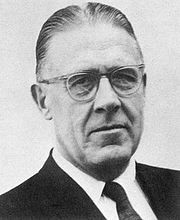
Later, linguistics at UCLA grew from one professor to two, as Hoijer joined forces with a distinguished Indo-Europeanist, Jaan Puhvel (1932- ). During the mid-1950s, the brief catalog section for the field was called “Linguistics and Philology”, reflecting the interests of these two faculty.
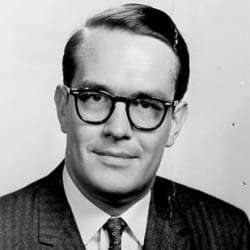
By the late 1950’s a new and effective force for linguistics at UCLA had emerged: Robert P. Stockwell, who had been hired into the English Department in 1956.
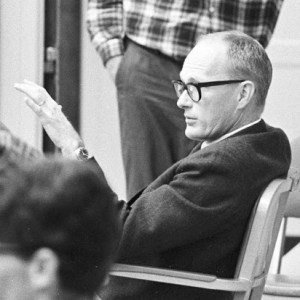
Stockwell developed an alliance of future linguistics faculty who would form the nucleus of the new department, including early on the phonetician Peter Ladefoged, the American Indianist William Bright, and the Africanist William Welmers. Stockwell also developed his own intellectual interests in an important way: although his own Ph.D. was in English Philology, as the 1950s proceeded he observed the onset of Generative Grammar within linguistics with the early work of Noam Chomsky, and became an enthusiast. Stockwell likely surmised (correctly, it turn out) that the new direction could provide the basis for a very strong new department.
Decades after these early days, Prof. Stockwell (I believe) wrote the following words as part of an earlier version of this web page:
The Department began as an interdepartmental program in 1960. For the first two years only an MA was offered. A doctoral program was approved and implemented in 1962 and a bachelor’s program in 1965. In 1963, the Center for Research in Languages and Linguistics was founded. The Center provided a reading room, administrative services, and a sense of unity for the fledgling linguistics program. The members of the first class of doctoral students founded the Graduate Linguistics Circle, the organization of graduate students which continues to this day to provide vitality to the Department.
On July 1, 1966, the Department of Linguistics officially came into being and the Center was phased out. It was through the Center that the 1966 Linguistic Institute was organized and administered.
The physical life of the Department began with the administrative office and the Reading Room in the Graduate School of Management (now called Public Policy), the Phonetics Laboratory in Rolfe Hall, the African language section in Royce Hall, and faculty offices scattered about the campus. In 1973 the Department moved to its first consolidated quarters on the second floor of Campbell Hall, with the Phonetics Laboratory expanding to occupy space both in Rolfe and the basement of Campbell. The Department occupied these “temporary” quarters for the next 18 years, finally moving in its twenty-fifth year of existence into entirely renovated quarters, with all offices, laboratories, and communal areas in contiguous space on the second and third floors of Campbell Hall.
For much of the time during the development of the Department, Stockwell was its chair. He was very dynamic and did a remarkable job at getting faculty positions from the University, as well as recruiting star people to the new department.
The rough life in early times
Although UCLA provided substantial faculty resources for the new program, the support for space and for grad students was meager. Ca. 1981, on the main floor, there were no walls separating faculty offices, only partitions — a health hazard for department members, since back then smoking was allowed and the smoke drifted from office to office, creating acrimony. Typewriters were scarce, as were individual telephones — a loudspeaker system permitted office staff to notify faculty they had a call, so they could trundle down the hall to pick up the line in the main office. Faculty were encouraged by Chair Stockwell to avoid the expensive copy machine, and use ditto instead. Campbell Hall had no air conditioning and often got quite hot inside. Grad students had no support packages and were basically responsible for hunting down their own means of survival. They also had no place to sit and work. It’s really pretty amazing what department members accomplished under these conditions!
Fortunately, life gradually improved, with computers (Peter Ladefoged nobly permitted all to use his six grant-funded mini-computer terminals), with AC (provided to us by a donor when another university attempted, unsuccessfully, to recruit six of our faculty at once). Timothy Stowell, as chair, saw to it that every grad student had a desk, and around the same time we found it possible to start recruiting students with five-year committed support packages. So the department gradually became a better place of work for both faculty and grad students.
Development of the department
During the early days, when there was a single national system for ranking departments, the department did exceedingly well, especially for such a young institution: it typically ranked second, behind only Noam Chomsky’s department at MIT. For decades now, continuing onward, the Department has been recognized as one of the most distinguished in the world in most areas of theoretical linguistics as well as in fieldwork, in phonetics, and in experimental and computational linguistics.
By now, several hundred people have received the Ph.D. degree from the department. They teach in academic programs, and work in linguistics-related business enterprises, across the United States and around the world.
In more recent developments the Department has seen a tremendous upsurge in undergraduate interest in our teaching. As of Fall 2023 we have about 580 undergraduate majors, probably the largest in the world by student count. We also teach thousands of students every year in our big undergraduate General Education courses, Linguistics 1 and Linguistics 20. With the growth we are once more spilled over into two buildings, with extra office space in adjacent Rolfe Hall.
Another major shift in the department’s focus has been the rise of laboratory science as a primary part of its mission. The original Phonetics Laboratory of Peter Ladefoged has been augmented with additional labs in Psycholinguistics and Language Acquisition.
In 2016, the department celebrated its 50th year with a happy and widely-attended celebration.
Who taught here?
According to catalog copy, over 70 faculty have held ladder positions with primary appointment in linguistics, since the department was founded. You can download a spreadsheet, entitled HistoryOfLadderFaculty_UCLALinguistics_2023, which lists all ladder faculty up to 2023. It comes sorted by last year (or most recent year) of teaching, but you can sort it other ways (e.g., to find who were the faculty in a particular year). The spreadsheet is not 100% accurate, since new faculty often are hired too late to make it into the catalog; and from 1995-2007 the catalog was biennial, not annual.
Faculty of the Founding Generation
William Bright (1928-2006) taught at UCLA from 1959 to 1988. He was a distinguished scholar of languages both of India and North America and for many years was editor of the journal Language
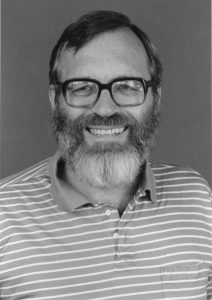
Victoria Fromkin (1923-2000) was one of the department’s own first Ph.D.’s, noted for her work in phonetics, phonology, and psycholinguistics. She began teaching in the department in 1965, and served as Dean/Vice Chancellor of the UCLA Graduate Division from 1979 to 1989.
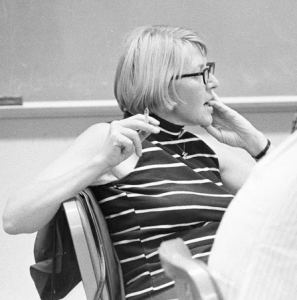
Harry Hoijer (1904-1976), a student of Edward Sapir, was a distinguished anthopologist and linguist, specializing in Athapaskan languages. He was chair of the Linguistics Program from 1959 to 1963; see above for his earliest contributions to linguistics at UCLA.
Peter Ladefoged (1925-2006) came to the UCLA department in 1963. He served as regular teaching faculty until 1991 and was a Research Linguist/Emeritus Professor from 1991 to 2006. He achieved great eminence in the field of phonetics. For material about Peter Ladefoged, see the department’s page Remembering Peter Ladefoged.
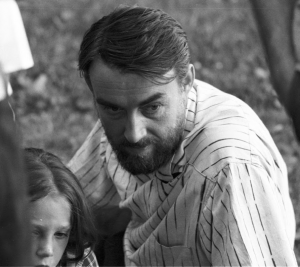
Paul Schachter (1929 – 2012) was one of the program’s earliest Ph.D.’s, and became a noted authority on syntactic theory and on Philippine languages. He taught in the department from the mid 1960s to the early 1990s, serving as chair during the mid 1980s.
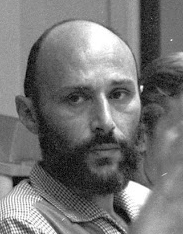
Robert Stockwell (1925-2012) was the founding chair of the department. He taught in the department from 1956 to 1994 and was for many years its Chair.


